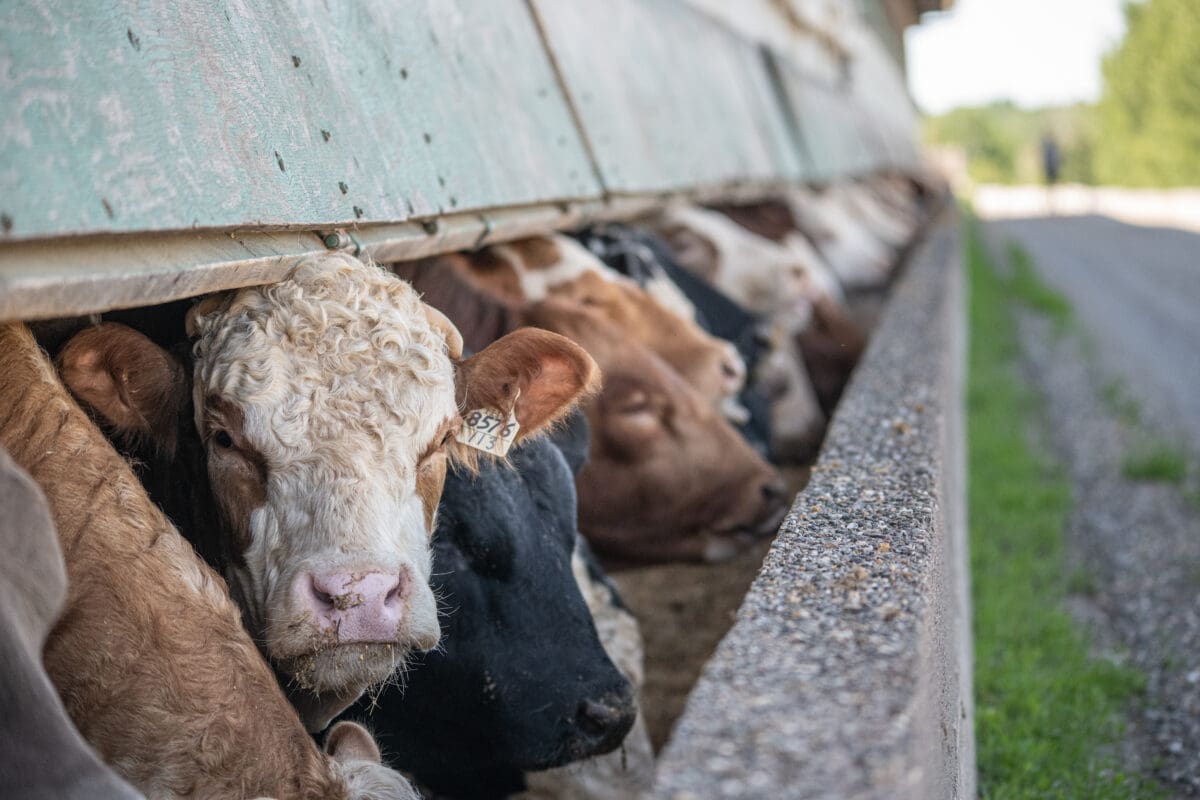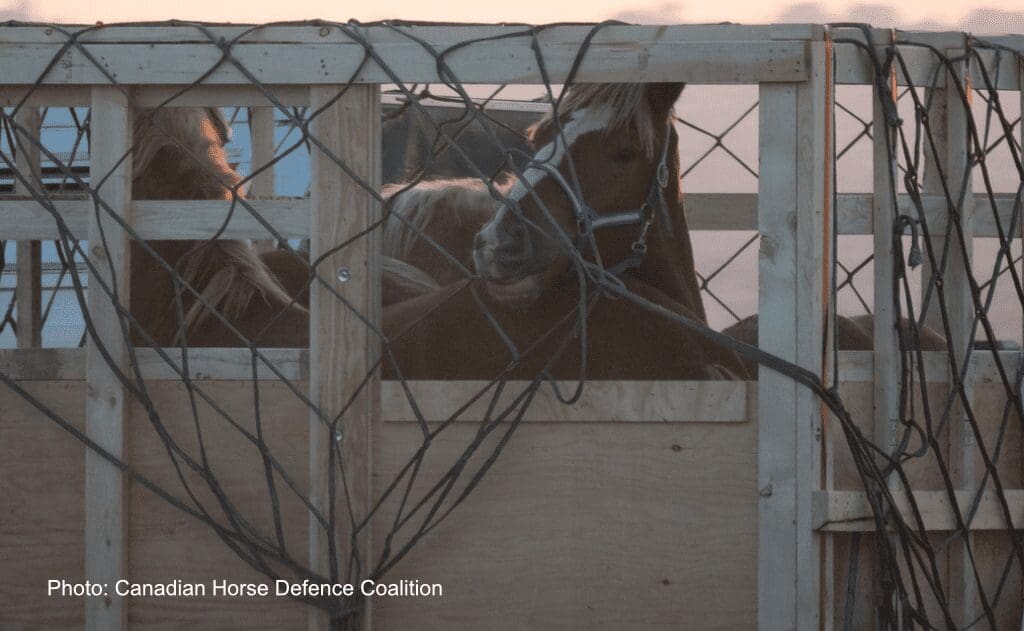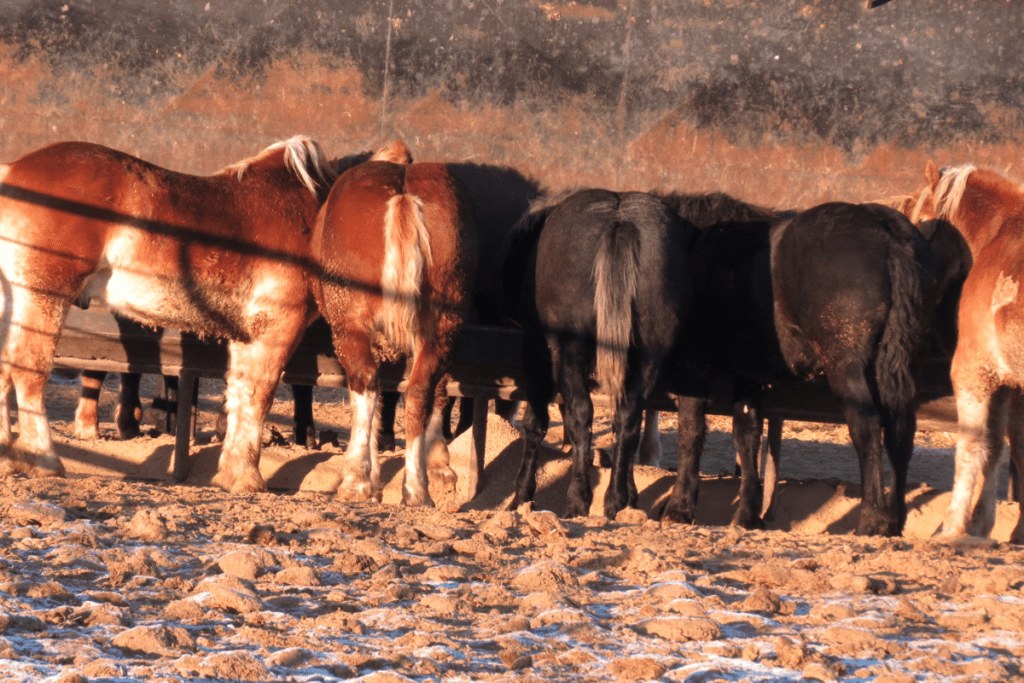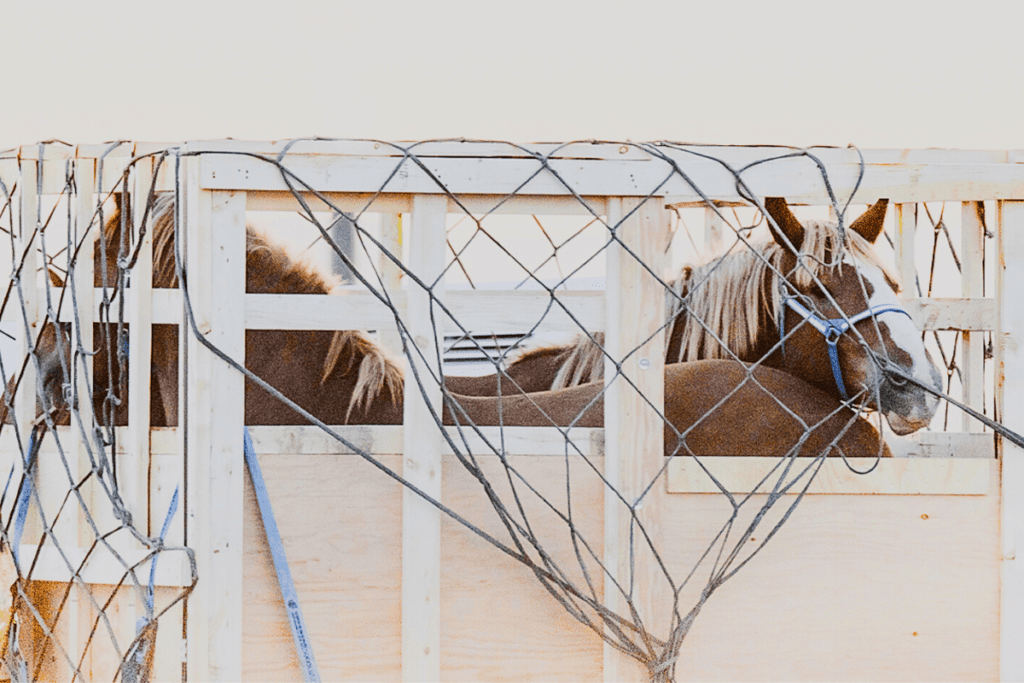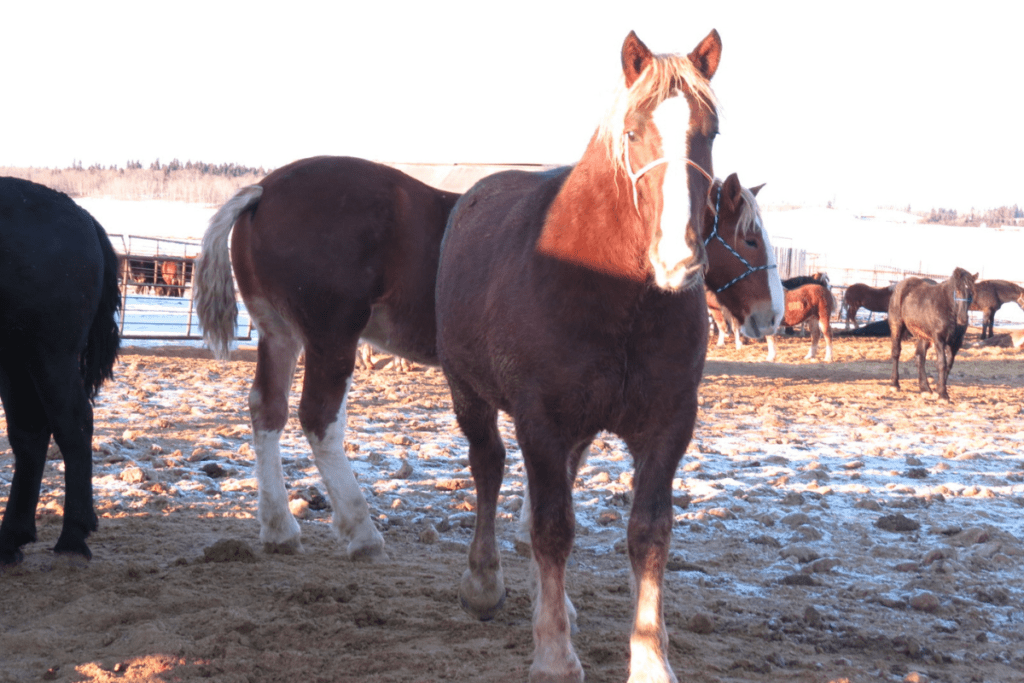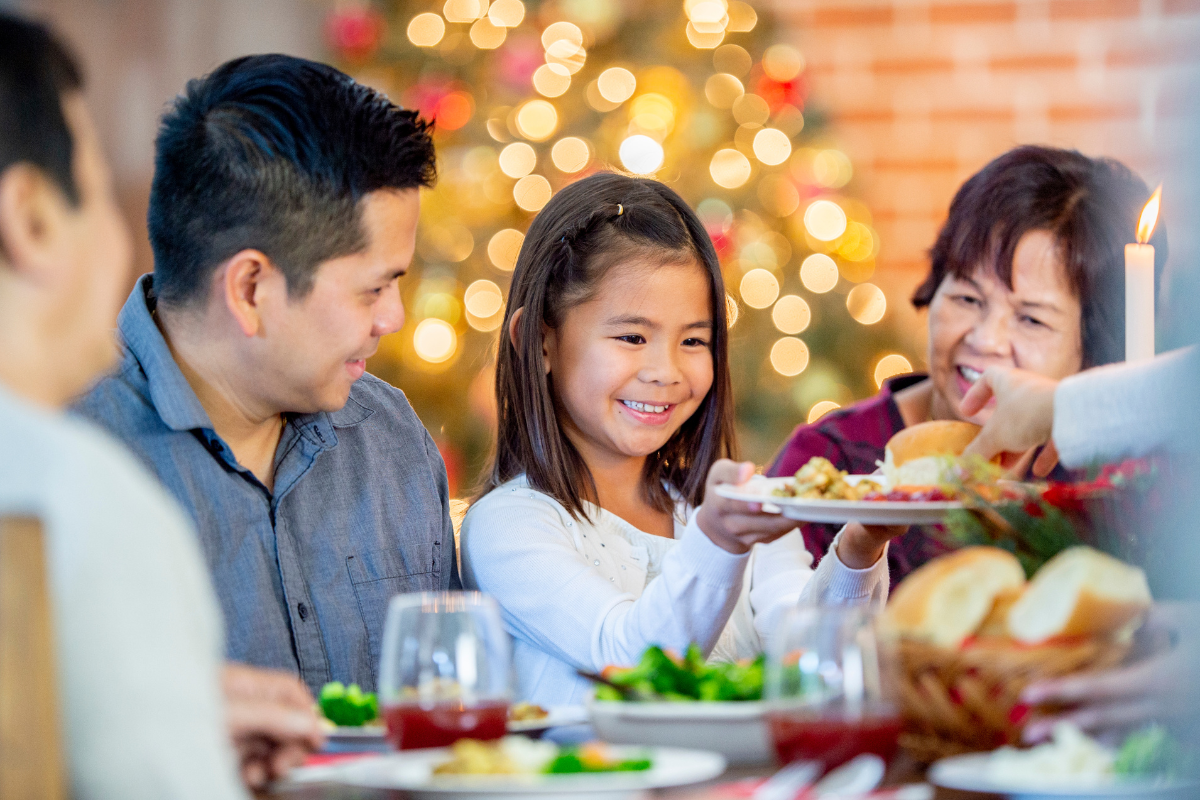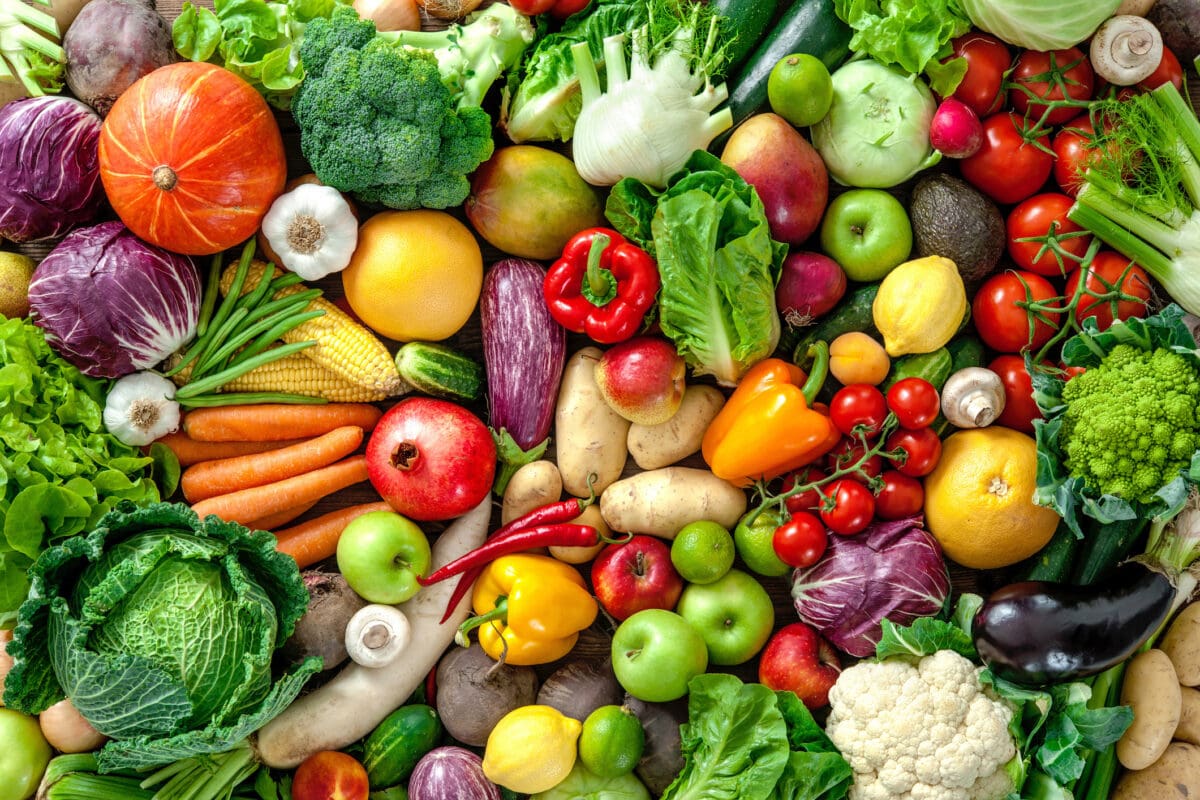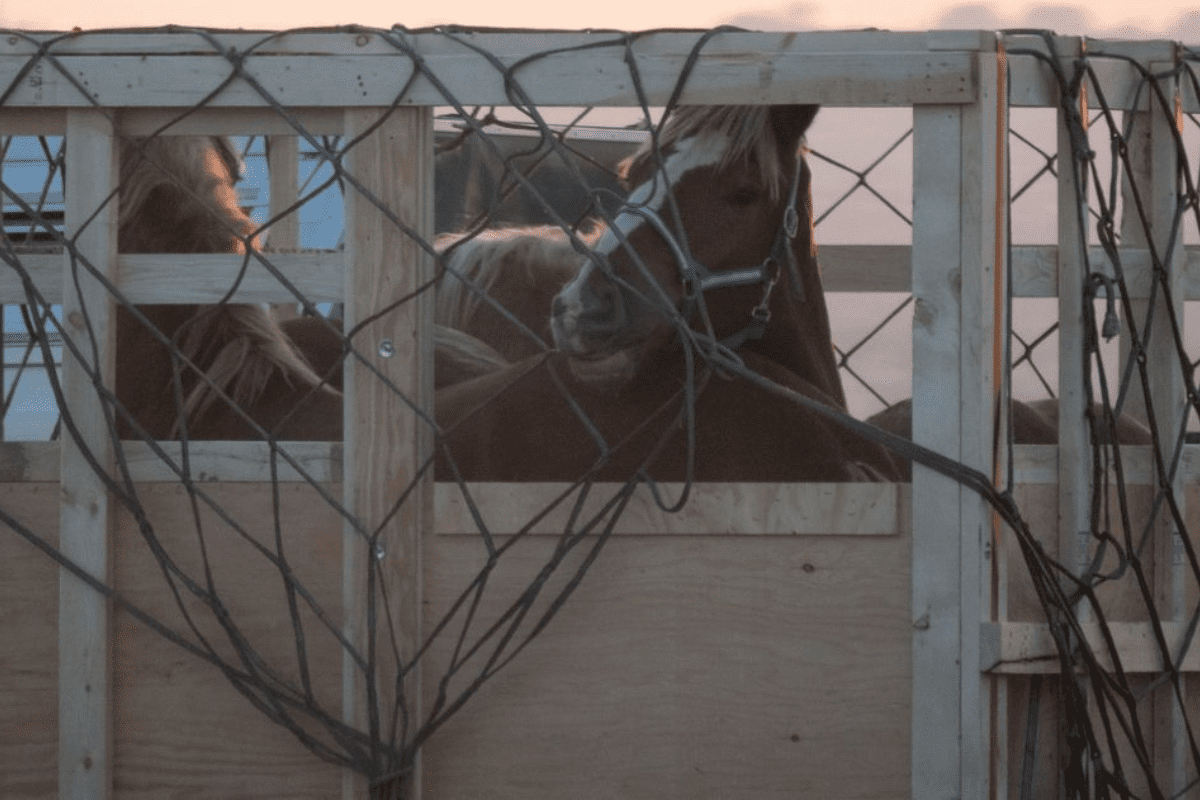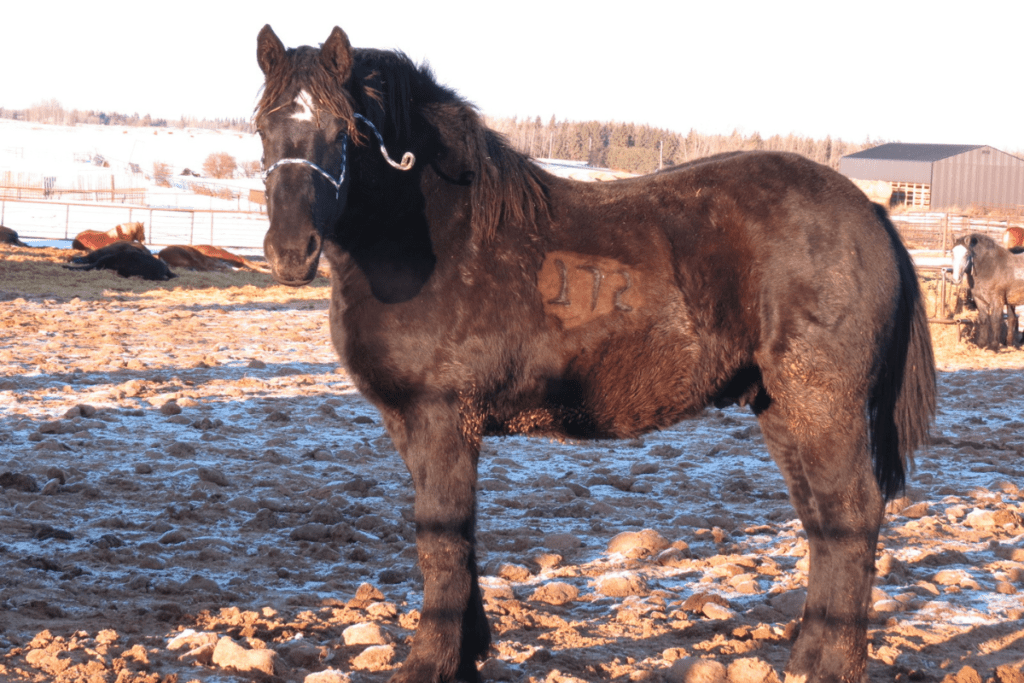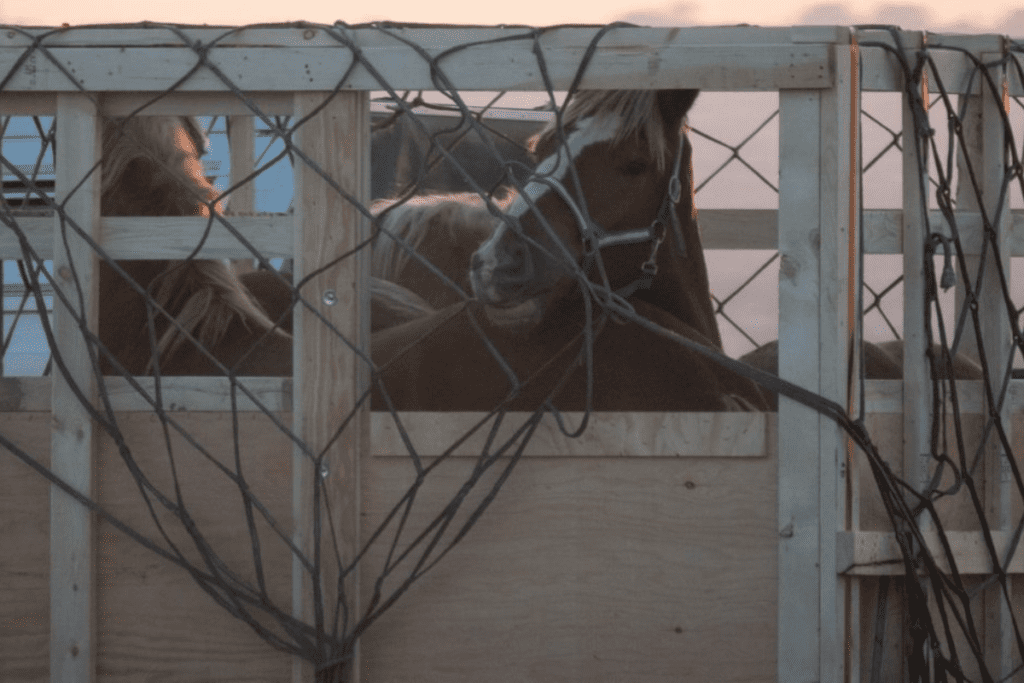We’ve discussed the laws and regulations in place to protect animals, and the gaps in those regulations that cause animals to suffer. This month we learn: what processes are in place to ensure the regulations are being met?
In the final episode of The Informed Animal Ally’s series on animal cruelty, the VHS’s Chantelle Archambault and Amy Morris discuss the processes in place to enfore laws and regulations intended to protect animals from suffering.
Since the time of recording, Animal Justice has released disturbing footage of regulations being violated at a B.C. slaughterhouse called Meadow Valley Meats, which is responsible for brands marketed as “local”, “humane”, and coming from “family farms”. Please take urgent action to call for changes to protect animals from terrible suffering in slaughterhouses in BC and across Canada.
Note: This written discussion has been edited for length.
The difference between abuse and neglect
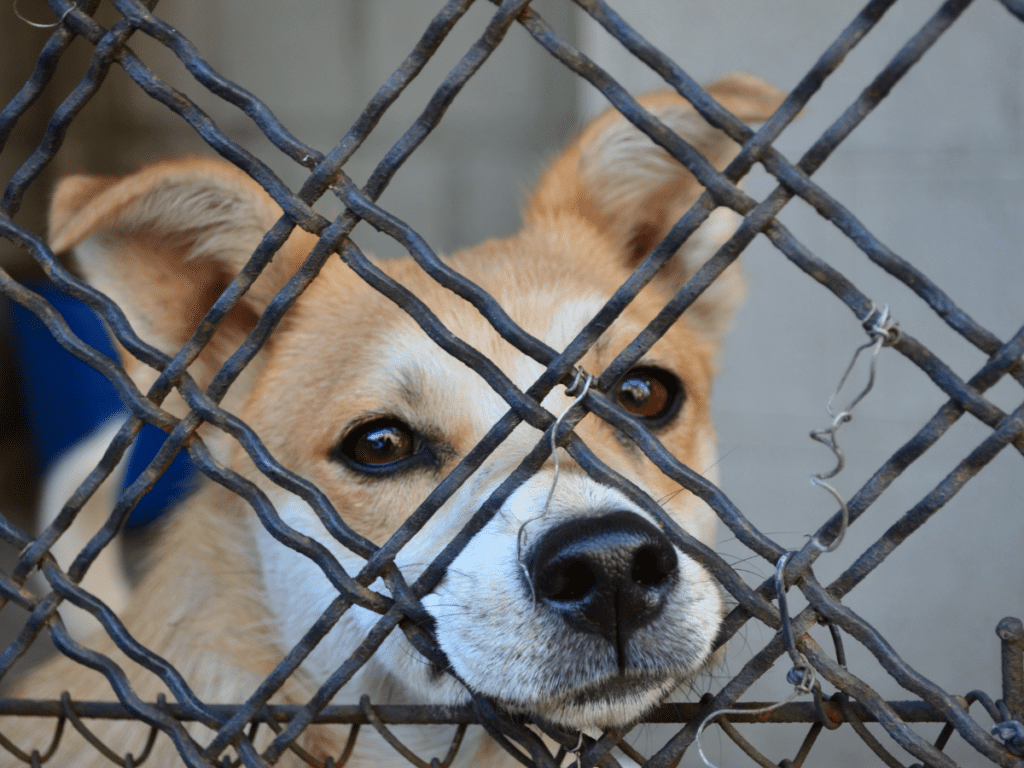
Chantelle: As part of our series on animal cruelty, we’ve been going over the laws and regulations that are in place to protect animals from suffering, as well as the gaps in those laws and accepted practices in various areas that humans interact with or exploit non-human animals.
We’ve not yet touched on how those laws and regulations are enforced, and that’s what we’ll be covering today.
So to start out with, I’d like to clarify some of the types of cases we’ll be referring to today. When we talk about animal cruelty enforcement, there are:
- Cases where the suffering is institutional, such as abuse cases for farmed animals;
- Cases where there’s been purposeful, sadistic abuse of animals by an individual;
- Cases classified as animal neglect where the person responsible for the animals often had a lack of knowledge or a lack of resources.
I’ll go through a couple examples for some context, but please mind that the details of these cases are disturbing, and we recommend having a plan in place for self-care.
Institutional animal cruelty

One case of institutional cruelty came up in 2017 when Mercy for Animals obtained undercover footage of spent laying hens being cruelly handled and thrown into crates at a farm in Abbotsford. The two companies responsible, Elite Farms in B.C. and an Ontario poultry processor called Sofina Foods Inc., pled guilty to two charges of animal cruelty.
They were only sentenced to a fine of $300,000 and three years probation. Elite Farms was given 10 years to pay the fine because they hadn’t been caught violating regulations before; Sofina foods was given six months because they were a repeat offender. That fine is a drop in the bucket for these massive corporations. There were no limits on them keeping animals, even though the abuse was horrific and on such a massive scale. They simply needed to update their training policies.
Amy: And something to note, since we’re going to be talking about enforcement, there’s both the observation and the gathering of evidence; and then that’s the point where it gets to the court system.
The reason that all of this even got to the court system is that it was observed through undercover footage recorded by an employee who had to bear witness to a significant amount of animal suffering to capture these clips. Having watched them, I’ll say, it disturbed me for a really long time.
This only happened because someone worked to get employed in a low paying job undercover. I can’t imagine how many farms this is happening on where we just don’t have any recorded footage of it.
Chantelle: Yeah, absolutely.
Unfortunately, what we end up seeing is that the most widespread suffering is in fact caused by institution level abuse, and yet when those cases do come out, they tend to get very light sentences and the corporations involved can continue to keep animals. Typically, there’s a few employees who are blamed and fired to make the issue seem like it was an individual issue rather than part of a larger institutional problem, even when the company was aware of the abuse.
In this case, there were various news sources reporting either five or six employees fired, including one supervisor, and both the whistleblower and the supervisor who was fired say that they reported the treatment of the chickens and nothing was done until the video footage was leaked publicly.
Individual animal abuse

Chantelle: For an example of individual animal abuse, another really upsetting case that was in the media about a decade ago was the case of Captain the dog in Vancouver.
The person who was supposed to be caring for Captain was Brian Whitlock, and he brutally harmed and killed him. Captain’s body was found in a dumpster. He was emaciated and had signs of severe physical abuse. That’s an example of truly sadistic behavior toward an animal.
Brian was sentenced to a lifetime ban on owning animals, but only a 60-day jail term and three years’ probation. I think that’s a testament to how little animals’ lives are valued.
And then when he got out, he eventually went on to murder his mother just a year later.
That’s a really extreme and tragic case, but it does show the violence link – people who harm animals are often the same people who harm humans.
Amy: Certainly these cases of intentional abuse just don’t see the degree of sentencing that connects to that level of violence or the likelihood of violence that’s happening to others in that person’s life.
Individual animal neglect

Amy: Individual animal abuse cases are fairly infrequent. Most of the cases that end up getting reported to enforcement agencies tend to have to do with different types of neglect. Those vary from hoarding to animals in extreme heat and cold, but can also include animals that aren’t being treated for veterinary conditions.
These cases are certainly more nuanced and complex because the people don’t necessarily have intent and they may be facing financial barriers as well as systemic marginalization that’s leading to them not being able to care for the animals in their care. They require a more nuanced kind of approach to enforcement.
Chantelle: Yes, that’s certainly the case. When we see the term animal cruelty in the media related to individuals, the public response tends to advocate for the harshest sentence possible across the board, but different cases need different treatment.
For instance, jail time would be more appropriate for a case of someone who’s deliberately abusing animals, whereas maybe a restorative justice approach would be a better option for someone who had a lack of knowledge or a lack of resources to meet their animals’ needs.
Amy: Two factors that can play a really significant role in those neglect cases are:
- Normalization: seeing something get gradually worse every day so it seems normal;
- Minimization: feeling like something isn’t so bad because other factors may be worse in someone’s life.
The way to address that way of thinking is really about providing a person an opportunity to learn and see things differently, rather than punishing them, which just ends up inducing shame and really doesn’t change their behavior when they inevitably have animals in their lives later on.
We can get into seeing a cycle of this situation repeating because it hasn’t been adequately addressed.
Puppy mills, kitten mills, and breeding
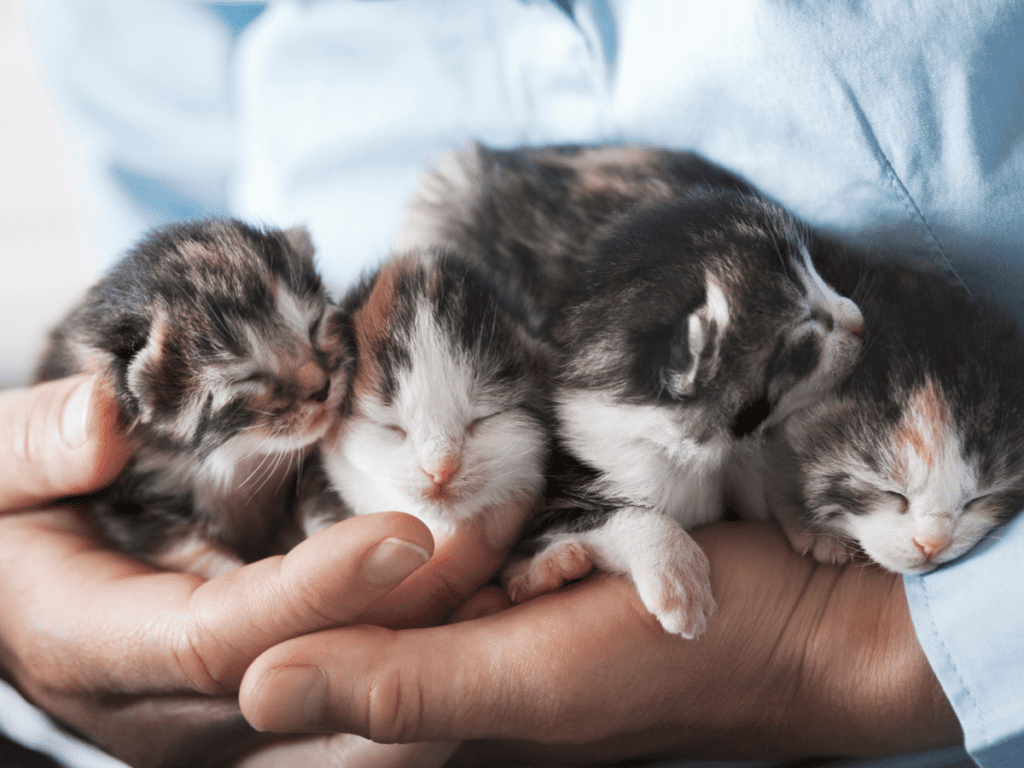
Amy: When it comes to enforcement, both the law enforcement piece and the court system, and proactive monitoring, they really differ significantly by species and by province.
I’ll use an example puppy and kitten mills.
- In New Brunswick, there’s been legislation in place that regulates dog and cat breeding since 2010. These regular inspections are funded by fees that the businesses themselves have to pay. There’s a regulatory system in place for ensuring that the people who are breeding animals are taking good care of those animals.
- Prince Edward Island has something similar regulating pet establishments.
- Provinces like Manitoba and British Columbia at one point in time enacted clauses that allow for regulation to happen of this industry, but it was never activated, which means there’s no actual protections for animals beyond the laws that already apply to all animals. Those laws are only enforced based on complaints. The laws are quite broad and that allows for vastly different interpretations
Industry specific regulations that are proactively enforced are meaningful because they have prescriptive requirements for the minimum ways animals should be cared for.
Without those minimum requirements, it’s left up to the interpretation of the individuals who are interpreting the law. That could be the breeder themselves; that could be the law enforcement person looking at a complaint. They interpret the law based on their personal upbringing, their values, maybe the amount of effort required to make an assessment, maybe the amount of resources that the organization has that’s doing the enforcement.
There’s endless examples, but one that I like to use is a standard that requires water be available at all times. A standard like that is easy to identify if it’s being met. You can say, yes, it’s being met, or no, there’s a violation. And then if there’s a violation, you can say, you need to do this specific thing.
But if there’s no standard in place and there’s no water on display for an animal, a person could argue that they provide water once a day and that’s sufficient to meet the animal’s needs. And then if there was a case, it would be left up to the court to decide if it’s okay or not for animals to have water just once a day. This includes really costly endeavors getting to the point of the court system. It involves gathering evidence and producing experts to testify to the minimum accepted amount of water an animal needs, as well as to prove that the animal was in fact dehydrated.
If you think about your average RCMP officer or enforcement officer from an animal welfare organization, they’re not trained medical practitioners. They’re not equipped to gather evidence in the field that would say whether animal is dehydrated or not; aside from giving the animal a bowl of water and seeing what happens.
By the time they leave and come back with a warrant to seize an animal that they believe is dehydrated to bring to a vet to assess for dehydration, the operator would have provided the animal water; because they would have essentially predicted that this was all going to happen.
And then suddenly, the person comes back with a warrant and they go, oh no, I’ve provided water. So this kind of pattern can happen over and over for years where an enforcement officer shows up, no water’s being provided, and then suddenly a week later, the enforcement officer comes back, water’s there.
And that can happen for all species of animals that are kept for profit, where there’s no standards for good animal welfare being proactively audited for. I use this one example of water, but you can think it applies to the housing, it applies to pretty much any way animals are cared for and kept.
Chantelle: Definitely. And ultimately this means that people can breed and sell cats and dogs with no requirements or monitoring. That leads to animals being sold with heritable diseases – diseases that they can pass on to their offspring if they have any – and treatable illnesses. When these types of cases are reported, there’s little that can be done because the person selling the animal often doesn’t provide the purchasers with an address or they provide a false address.
In some states in the United States, there are “lemon laws” that help protect the buyer and ensure that the person selling the animal is looking out for their well-being. But unfortunately, nothing like that has been instituted in Canada.
Amy: It’s pretty frustrating, particularly with the number of calls that come into SPCAs and humane societies about these kinds of cases where someone bought an animal from a rescue or a breeder and then they ended up very sick or they ended up having a disease.
Farmed animals
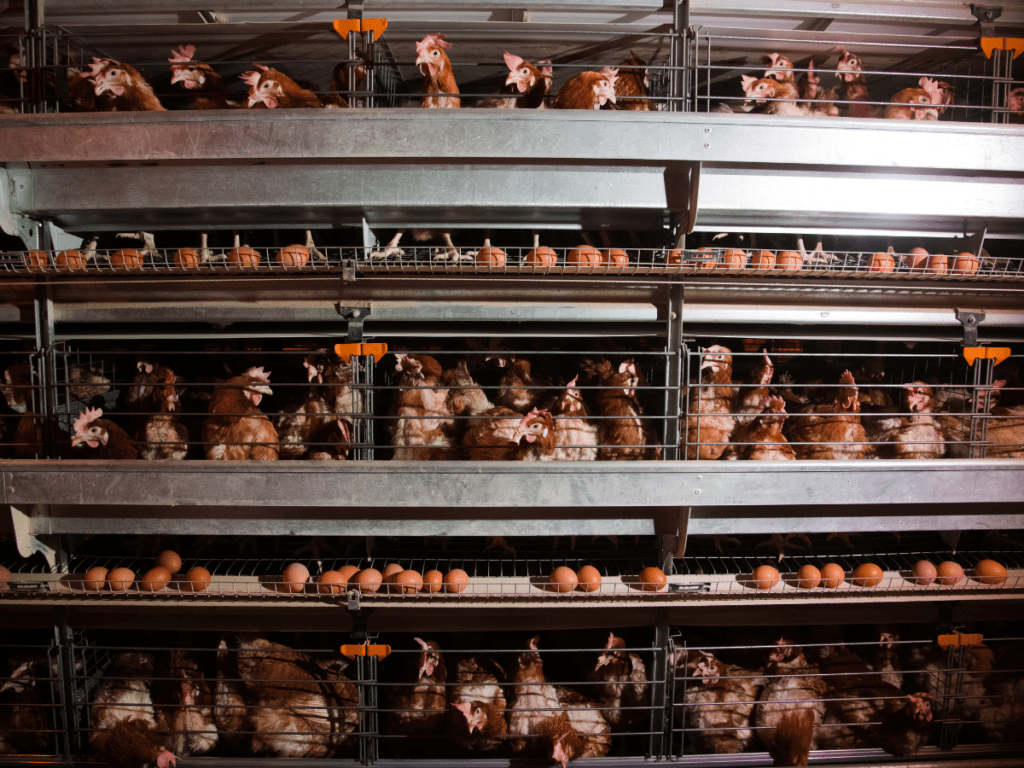
Amy: In general, when it comes to industries that raise animals for product or sale, including farmed animals and puppy and kitten breeders, if we speak about the province of B.C., the Prevention of Cruelty to Animals Act does allow for access during ordinary business hours to enter any premises other than a dwelling where animals are kept for sale or exhibition for the purpose of determining whether any animal is in distress on the premises.
The RCMP can enforce the Prevention of Cruelty to Animals Act, but they end up referring people back to the BC SPCA who will only be going to these kinds of facilities if someone calls in and says there’s something wrong there.
Chantelle: That brings us to talk about animals who are farmed for food and clothing.
On-Farm monitoring varies by province. As we alluded to earlier, different provinces have different types of enforcement agencies.
- In Ontario, animal cruelty investigations are a governmental responsibility, and the inspectors are appointed through the provincial government.
- In Manitoba, investigations are conducted by one of the province’s animal protection officers, and they include employed and contracted staff.
- In British Columbia, Alberta, Saskatchewan, and New Brunswick, protection of farmed animals is enforced by the SPCA.
Amy: In B.C., cruelty investigations are performed by the BC SPCA when a cruelty complaint is made.
There’s no active monitoring programs on farms led by any kind of third party.
Third party monitoring is the idea that an independent entity is responsible for making assessments as to the well-being of animals. It’s tricky to accomplish the idea of an “independent entity” because they have to not have any kind of bias.
So let’s say the government is either conducting inspections or they’re contracting an entity to conduct inspections. The government could give directions to them of how strict or loose to be with the assessments based on the government’s own interest in maintaining public trust of their abilities to enforce the laws.
If farm industry groups themselves try to contract an “independent” entity, that entity is beholden to the desires of those groups.
One way it could work is for an entity like the SPCA, who has no specific interest in public trust and does have a specific interest in animal welfare, to manage an agency that does the monitoring. But the information for the audits wouldn’t be publicly available because they’re a private entity.
The best case scenario is an agreement between industry, government, nonprofit or SPCA, and an independent contractor that would allow audits to occur and the results to be made publicly available. The reason this isn’t happening now is that this kind of system doesn’t work in favor of the farmed animal industry or government.
Chantelle: Absolutely. Just a little background on what’s going on now. Last year, the BC SPCA announced that they would be conducting 12 spot checks of farms per year with a veterinarian and also an SPCA officer and a Ministry of Agriculture staffer as a pilot project. After they announced this, they were met with industry backlash and from the BC Cattleman’s Association in particular.
I think that’s really interesting to note, given that more people are increasingly wanting transparency about what happens to animals on farms, and that includes people who purchase and consume animal products. I believe that should leave those consumers wary about what the industry has to hide.
Amy: And certainly there’s so much opportunity to find a middle ground. And what we’re seeing is an unwillingness to find a middle ground and a solid commitment to having no eyes on farms.
Chantelle: Yeah, definitely.
“Ag gag” laws
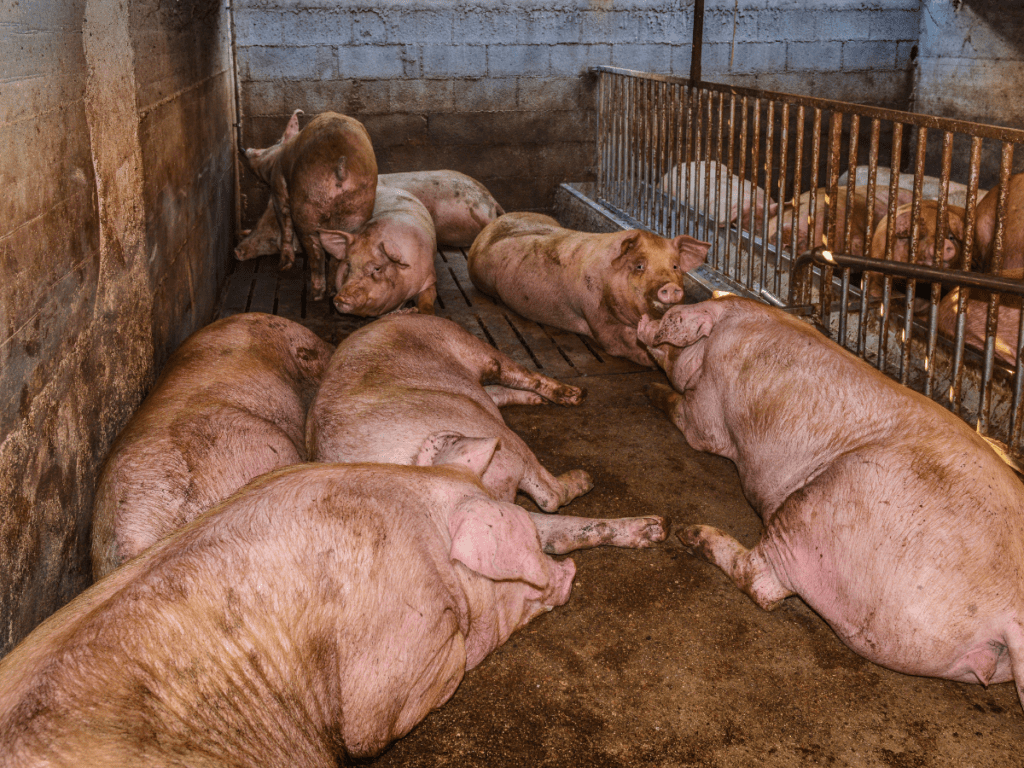
Chantelle: Several provinces have what’s known among animal advocates as ag gag laws, which specifically prevent non-approved individuals from going onto farm properties and seeing or documenting what happens; for instance, journalists investigating cruelty claims on a farm.
In other provinces, public awareness of what happens on farms is limited by general trespassing laws, which effectively make it illegal for advocates or journalists to capture footage of cruelty.
Any footage that’s obtained illegally, which is basically all footage, is non-admissible in court, even if there’s blatant evidence of cruelty and animal suffering.
Amy: I find this so wild, that government and industry essentially collude in great length to hide from the public what’s happening on farms.
For example, in B.C., a group of advocates sat in on Excelsior hog farm in Abbotsford and took photos of sick injured and dead pigs, and four of those advocates were put on trial for exposing suffering on that farm.
But because further evidence couldn’t be obtained legally, no action has been taken against the farm at this time. That’s pretty shocking because the footage that was recorded undercover is accessible, and it’s horrific to watch. It’s honestly some of the most disturbing footage that I’ve come across of pigs.
That footage was provided to an enforcement entity and yet when they go on site, they don’t find any violations of the law because their presence is expected and things have been cleaned up. So then they can’t gather evidence to pursue charges, even though it’s obvious from the footage that the animals were suffering in really egregious ways.
Chantelle: Absolutely. That’s why so many animal advocates, including the VHS, have been calling for mandatory video monitoring on farms, which would deter the industry from being able to hide animal suffering.
Farmed animal transport and auctions
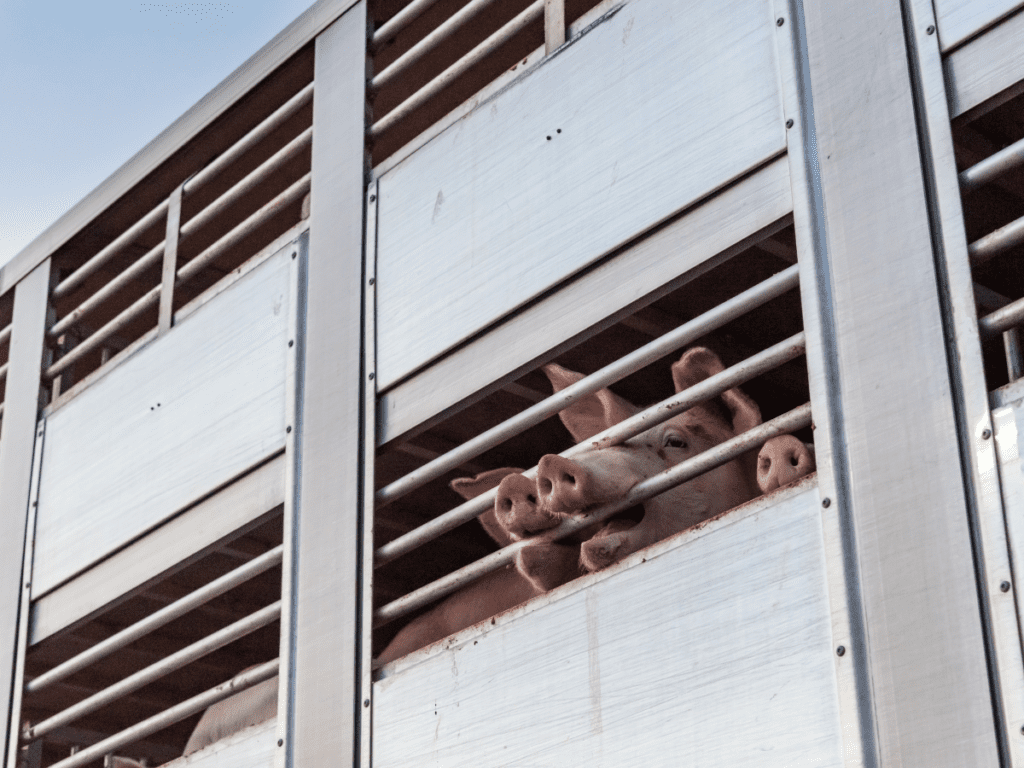
Amy: It’s such a hard topic to talk about, but we can’t talk about farmed animals on farms without thinking about farmed animals in other contexts.
Maybe life on a farm is okay, maybe it’s not. But there’s other aspects like transport, going to auction facilities and slaughter that have really big impacts on farmed animals’ lives.
When it comes to the enforcement of transport and slaughter, the Canadian Food Inspection Agency (CFIA) is responsible for responding to complaints.
They typically respond with fines, even for egregious suffering, and they don’t refer cases for legal proceedings that would involve any kind of jail penalties. So they just continually use what they call “Administrative Monetary Penalties“.
They do have veterinarians that are attending at slaughter facilities, typically where animals are unloaded or slaughtered; but despite animals, dying and being found dead during the transport process or having limbs torn off, really awful things, no animal cruelty charges are being recommended by these veterinarians.
I’ll also speak a little bit about auctions. Anecdotally, if you talk to anyone who’s been to an auction, they’ll tell you it’s a place where you can observe significant animal distress. And sometimes what’s considered critical distress, where an animal is essentially close to death and really in an acute state. They don’t have any kind of monitoring in place.
We hear these accounts of animals arriving or being sold in really poor states, to the degree that they should never have been transported; but there’s no one who’s attending these events, tracking the sellers, going back to their facilities, checking them out, recommending charges of animal cruelty.
Essentially, no one wants to go to them because they know how bad it is. So it’s this huge gap in the enforcement of animal cruelty, legislation.
Changing attitudes & behaviours

Amy: I want to pause here and say that thinking and talking about animal protection and law enforcement can be pretty depressing. The systems are not set up to protect animals. While legislation does play a role, the most important thing is the volume of the public who are demanding better care for animals.
And so the unfortunate reality we’re seeing is that the average Canadian consumer doesn’t regard for animal welfare when it comes to the products they’re buying.
To change laws and policies, to get this proactive monitoring that we’re talking about with cameras in slaughter facilities, as well as funding for enforcement, big changes are needed in the attitudes of the public to actually push the government to prioritize these issues.
Without public support, politicians tend to see these issues essentially as niche.
And so when we meet with provincial government politicians and bureaucrats about issues that require better laws and proactive monitoring, whether that is sled dogs or animals in captivity or farmed animals, the most common response we get back is that it’s just not a priority. They’re not hearing from enough people and they’re not being swayed. So these issues seem to drop to the bottom of the pile
In their eyes, there’s an opportunity cost; if they keep things the way they are, nothing happens. And so they’re not facing some of those kind of incentives to make a different decision.
Chantelle: And that’s the most challenging part of advocating for animal well-being. The biggest and the most important thing we can do to improve enforcement is really to be active citizens, both with our peers and with politicians at the local, provincial, and federal level. Coming from a place of compassion and understanding, if every person is able to connect with and motivate five others to care about the value of animals and their capacity to suffer, we can really start to see real change.
Amy: Absolutely.
Next episode

This concludes our series on animal cruelty. Join us next week as we begin a new series on animal well-being with the topic “Is my pet happy?”


